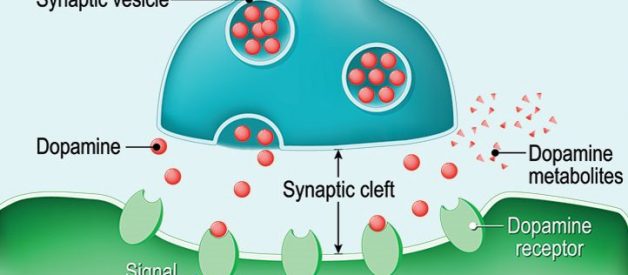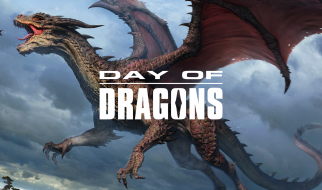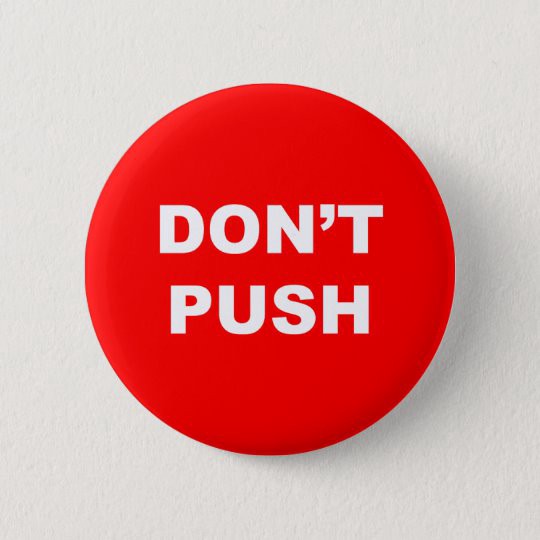
?Don?t press the red button!
I mean it. I can?t tell you what?s going to happen if you do, because honestly, we really have no idea. Now, I?m going to leave the room for just a second, then I?ll be back, okay? Just don?t touch the red button. Alright, I?ll only be a minute.?
Dialogue like this (or similar versions of it) is found pretty frequently in science fiction or fantasy. It isn?t always a button, either: the ?red button? is pretty much anything one character tells another not to do. We see this in real life, too. From schools to stores to jobs, there are almost always rules that end up completely shattered because people didn?t follow them.
Activities that are completely undesirable become tempting as soon as you aren?t allowed to participate in them. The most exclusive colleges are the ones more people try to get into. Things that you aren?t allowed to touch become almost magnetic. So why exactly do we feel the complete urge to do something as soon as we?re told we can?t?
Well, like almost everything in life, we can chalk this up to a couple big factors: our intense curiosity and our desire for dopamine rushes (which actually end up being almost the same thing!). However, there is also a lot of psychology involved in both responses, so let?s take a look at a deeper analysis of each.
Curiosity Killed The Cat
Let?s face it: humans are incredibly curious, and mysterious pieces of our environment (like a big red button) are often causes for interest. By taking an action we?ve been told specifically not to take, we learn of the consequence ? something which we don?t learn pre-button pushing most of the time.
Despite this, there?s actually a lot more going on in our brains when we get curious, and guess what? The grand majority of this happens because of dopamine! In MRI studies, when participants were introduced to something interesting that made them curious, they received a burst in dopamine from the curiosity. Not only that, but more action on the hippocampus occurred when experiencing curiosity, meaning there was more activity in the area memories are created.
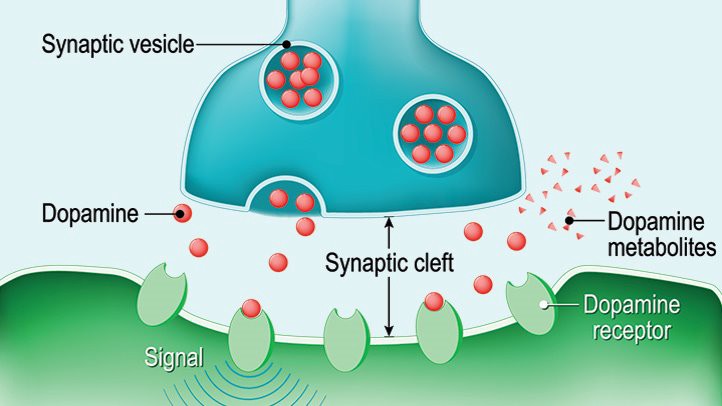 Dopamine as interacting with neurotransmitters. In this case, dopamine receptors are trading dopamine with synaptic vesicles, which allow the dopamine to be absorbed into the system.
Dopamine as interacting with neurotransmitters. In this case, dopamine receptors are trading dopamine with synaptic vesicles, which allow the dopamine to be absorbed into the system.
Psychologically, there are also several concepts at play. Curiosity is the essence of finding something that we can?t fit directly into our surroundings. This creates an internal drive to try and connect the dots to put the new information into our surroundings. It explains why many of us seek out new chances to learn, whether this be a new language or a study.
However, this doesn?t explain all curiosity, in fact, there?s a little more. This other theory, called the incongruity theory surrounds going back to being unable to fit new information into our overall understanding of the world. It talks about piquing curiosity when this understanding has a challenger.
In some cases, challenged world understanding would be someone handing you a piece of paper and telling you not to flip it over. In our world, we?re allowed to flip all papers over, so when we?re told not to, we demand explanation. Can you imagine simply not flipping the paper over, no questions asked?

Neither theory fully explains why we feel the need to press the red button and go against what we?ve been told. However, there?s definitely more to why we feel compelled.
We Expect Instant Gratification
In the same way we?re affected by a dopamine rush whenever we eat something sweet or do something pleasing, we expect more of this dopamine when we press the button. However, what?s actually happening is a reduce in cortisol ? a chemical which causes anxiety, which we get when we don?t know what pressing the button means.
Although we?ve already sort of discussed dopamine in the way it relates to curiosity, but it has similar connections to just typical desire to press the button. The dopamine gives desire to follow through with the action, especially because the initial burst gives many people the belief that continued action will result more in instant gratification.
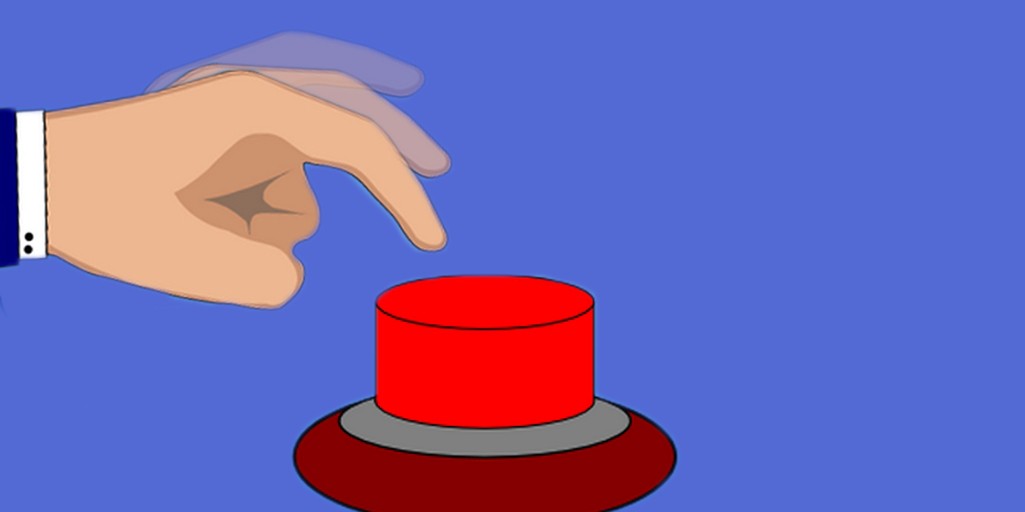
So how about that cortisol? Well, it comes from anxiety which we associate with not knowing what?s going to happen if we don?t do something. If we don?t press the red button, we?ll never know what happens if we do. This is pretty fundamental in understanding how reverse psychology works: by telling someone not to do something ? like telling your little sister not to touch your computer ? you give them more desire to want to do it.
In the example with your little sister, you?ve just made her ask question that she may not have considered before you mentioned your computer. Some of these might include wondering if you have an ulterior motive for not wanting her to touch your computer (like a secret file) or if you just don?t want her to break it. Either is valid, but because of the emphasis you?ve put on not wanting her to do it, she?s way more likely to go take a peek.
The Red Button In The Modern World
In April of 2015, Reddit launched an joke game called ?The Button? which counted down from 60 seconds until it reached zero. However, any time any user pressed the button, it reset to 60 seconds. The button reached zero after a couple months, but it had become quite clear that instant gratification (learning what would happen after pressing the button) and curiosity (wondering what would happen if pressing the button) play huge roles in our day-to-day lives.
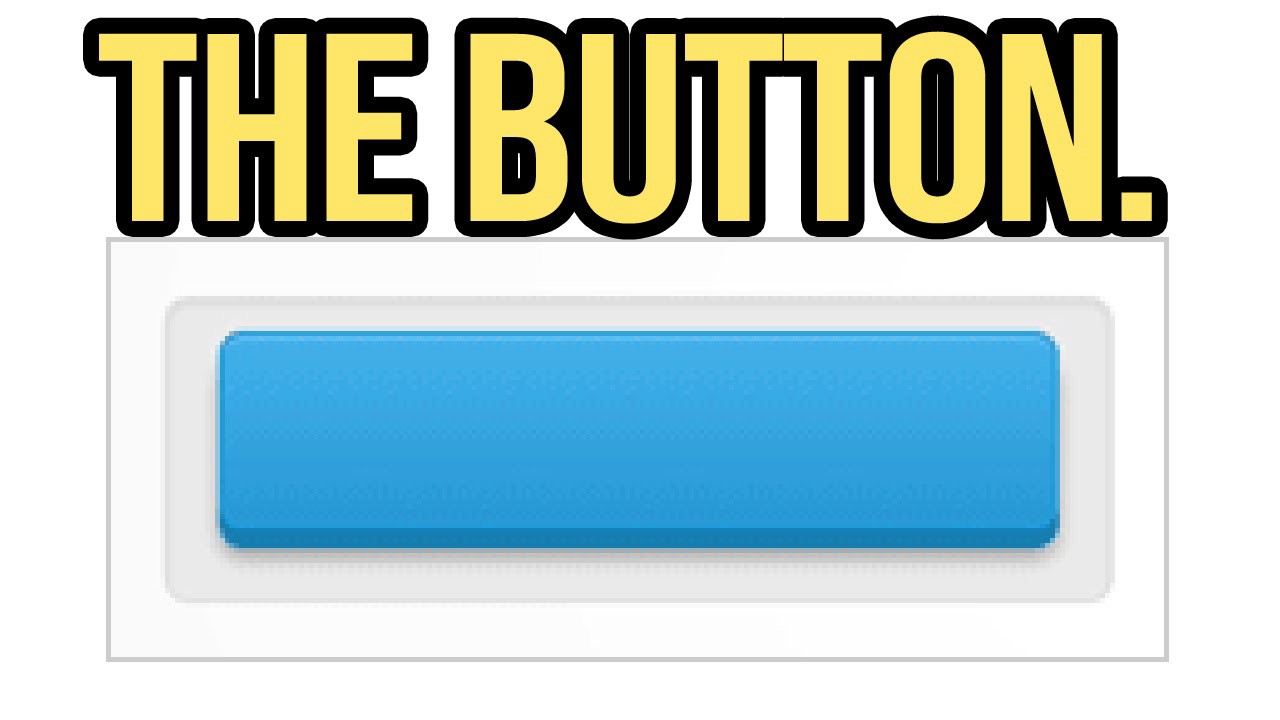
Social media also uses the ?Red Button? ideas by spamming you with notifications and using colorful badges to bring your eyes to them. Despite your knowledge of the unimportance of the badge, you nonetheless click on it, intrigued to find out more about the post. That?s one way social media is designed to be addictive. Even Medium uses badges in the top corners to give notifications on activity on your account.
 Advertisements in the real world can be easily constructed by using reverse psychology, giving you miniature red button scenarios that entice you to learn more and use the product.
Advertisements in the real world can be easily constructed by using reverse psychology, giving you miniature red button scenarios that entice you to learn more and use the product.
The Red Button trope is far from a mere part of science fiction. It plays through us daily, prevalent in our everyday lives as it pulls the strings to what actions we take and use reverse psychology into tempting us to take actions. The world is hard and you have to look out for playful ploys used by agencies everywhere. So how can you protect yourself in a mind-tricking market?
Protection Against Reverse Psychology
- Recognize it. Listen to the advertisements and what people ask you to do and not to do. Sometimes it?s clear when someone is giving you a red button scenario, but other times you have to read between the lines. However, the first step is to recognize when you?re facing a red button ploy.
- Ignore it or avoid it. If someone tells you not to flip over a piece of paper, so what? Your friends are waiting to play with you in the other room. You?ve got a great book that you?re almost done with. You?ve got a doctor?s appointment to attend to. The red button isn?t the end-all-be-all, and you can put it away. If it?s in your phone notifications, block the badges in settings.
- Practice self control. Maybe you can?t escape any of the alerts or red button scenarios, but you can practice not engaging with them. It isn?t easy ? these things have been designed to give you enough dopamine to suck you in ? but don?t let them. As long as you have your own mind, you have the ability to make decisions, which can include not engaging in quick gratification schemes.
It isn?t easy to look out for reverse psychology and red buttons in our life. However, if you can avoid them, you can work your way around pitfalls and ultimately become a stronger person. After all, the button isn?t everything, and it?s *usually* not the end of the world.
Thank you for reading my article! I hope you enjoyed it and learned a little more about why you always want to press the red button. If you?d like to talk more, feel free to email me at [email protected] or find me on LinkedIn at Amelia Settembre!
